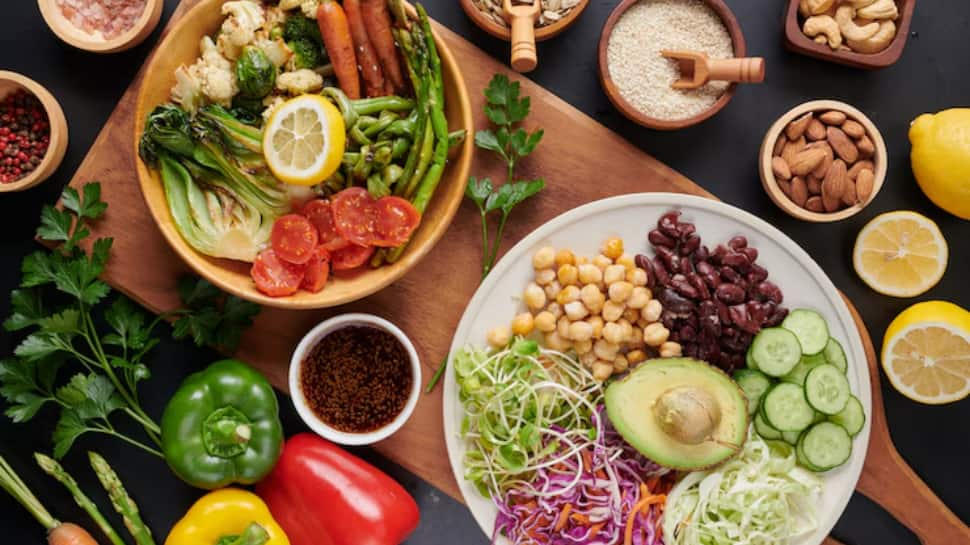10 Natural Foods That Lower Cortisol Levels And Help Combat Stress, Anxiety, And Hormonal Imbalance | Health News

Cortisol, often called the “stress hormone,” plays a vital role in your body’s response to stress, metabolism, and immune function. But when cortisol levels remain elevated for long periods — often due to chronic stress, poor sleep, or poor diet — it can lead to weight gain, fatigue, anxiety, digestive issues, and even heart problems. Luckily, nutrition plays a powerful role in managing stress.
Here’s a list of 10 foods that can help reduce and balance high cortisol levels naturally:-
1. Avocados
Why they help: Avocados are rich in monounsaturated fats, magnesium, and B vitamins, all of which help lower cortisol levels and support brain and hormone function.
Bonus tip: Add slices to your breakfast or make a calming avocado smoothie.
2. Leafy Greens (Spinach, Kale, Swiss Chard)
Why they help: Leafy greens are loaded with magnesium, a mineral that helps regulate cortisol and improve sleep quality. Magnesium deficiency is often linked with stress and anxiety.
Try this: Add spinach to soups, smoothies, or omelets.
3. Blueberries
Why they help: Blueberries are rich in antioxidants and vitamin C, which help combat oxidative stress caused by high cortisol. They also support the adrenal glands.
Pro tip: Snack on a bowl of blueberries or toss them into oatmeal.
4. Fatty Fish (Salmon, Mackerel, Sardines)
Why they help: Fatty fish are rich in omega-3 fatty acids, which help reduce cortisol and lower inflammation. They also support brain health and mood balance.
How to eat: Aim for 2–3 servings a week for optimal benefits.
5. Dark Chocolate (in moderation)
Why it helps: High-quality dark chocolate (70% or more) contains flavonoids and magnesium that lower stress and improve mood. It also helps regulate cortisol response to stress.
Serving tip: Stick to one or two small squares per day.
6. Sweet Potatoes
Why they help: Sweet potatoes are a great source of complex carbohydrates, which can reduce cortisol by stabilizing blood sugar levels and supporting serotonin production.
Meal idea: Bake or steam them for a calming dinner side.
7. Nuts and Seeds (Almonds, Walnuts, Chia, Flax)
Why they help: Packed with healthy fats, magnesium, and zinc, nuts and seeds reduce inflammation and cortisol. They also help keep you full, reducing blood sugar crashes.
Snack tip: Carry a handful of mixed nuts during busy or stressful days.
8. Green Tea
Why it helps: Green tea contains L-theanine, an amino acid that promotes relaxation without drowsiness. It helps reduce stress and supports cortisol regulation.
Daily tip: Swap one coffee for a cup of warm green tea.
9. Garlic
Why it helps: Garlic supports the immune system and has been shown to reduce cortisol levels in studies. It also acts as an adaptogen, helping your body manage stress better.
How to use: Add to stir-fries, soups, or salad dressings.
10. Citrus Fruits (Oranges, Lemons, Grapefruit)
Why they help: Citrus fruits are high in vitamin C, which helps lower cortisol and improve immune response under stress. Vitamin C also promotes collagen and heart health.
Daily dose: Enjoy fresh juice or add lemon slices to water.
Chronic stress is unavoidable, but you can take back control through mindful eating. Incorporating these 10 foods into your daily meals can help regulate high cortisol levels, boost your mood, and support long-term health. Pair your diet with regular exercise, quality sleep, and stress-reduction practices like yoga or meditation for maximum results.
(This article is meant for informational purposes only and must not be considered a substitute for advice provided by qualified medical professionals.)







